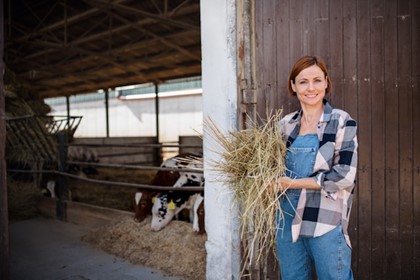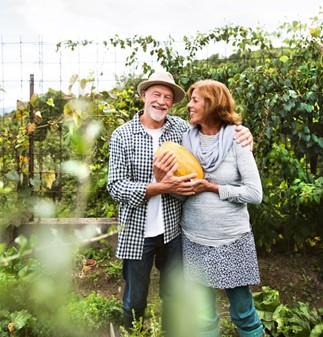There has been a resurgence of interest in growing one’s own food over recent years, driven by a desire for sustainability, self-sufficiency, and healthier living. From the humble backyard garden to sprawling homesteads, individuals and families are discovering the numerous benefits of producing their own fruits, vegetables, and even meat. Tim Kealy discusses below the advantages of growing your own food, exploring how it can be done on a small backyard plot or multiple acres, and discussing the joys of homesteading wherever you are.
Cultivating Abundance
There’s something deeply satisfying about cultivating your own food. Beyond the obvious benefits of fresh, flavorful produce, gardening offers a connection to the earth and a sense of accomplishment. Whether you’re tending to a small, raised bed or managing a sprawling garden, the act of nurturing plants from seed to harvest is immensely rewarding.
But growing your own food goes beyond vegetables and herbs. Many homesteaders also raise their own meat, from chickens for eggs and meat to larger livestock like pigs, goats, and even cows. Raising animals not only provides a source of protein but also allows for a deeper connection to the food we eat and the animals that sustain us.
Scaling Up: From Small Plot to Homestead
One of the beauties of growing your own food is that it can be done on virtually any scale, from a few pots on a balcony to a full-fledged homestead. Even a modest 3–5-acre plot of land can support a diverse range of crops and animals, providing ample food for a family while also allowing for self-sufficiency and sustainability.
On a small plot, vertical gardening techniques such as trellising and container gardening can maximize space and productivity. Intensive planting methods like square foot gardening and companion planting can further increase yields, allowing for a bountiful harvest even in limited space.
For those with more land to work with, the possibilities are endless. A mix of orchards, vegetable gardens, and pasture can provide a varied diet year-round, while animals like chickens, ducks, rabbits, and goats can supply eggs, meat, milk, and even fiber. With careful planning and management, a small homestead can be a thriving ecosystem that sustains both humans and wildlife.

The Benefits of Homesteading
Homesteading goes beyond just growing food—it’s a way of life rooted in self-sufficiency, sustainability, and simplicity. By producing one’s own food, homesteaders reduce their reliance on the industrial food system, with its dependence on fossil fuels, synthetic pesticides, and monoculture farming practices. Instead, they embrace regenerative agriculture techniques that nourish the soil, protect biodiversity, and promote long-term ecological health.
But homesteading isn’t just about food production. It’s also about living closer to nature, embracing traditional skills, and fostering a sense of community and resilience. From preserving food through canning, drying, and fermentation to harnessing renewable energy sources like solar and wind power, homesteaders strive to live in harmony with the land and reduce their environmental impact.
Preserving the Harvest
One of the challenges of growing your own food is dealing with the abundance that comes with a successful harvest. Fortunately, there are numerous methods for preserving food to enjoy throughout the year. Canning, freezing, and dehydrating are popular options for preserving fruits and vegetables, while lacto-fermentation can be used to preserve everything from sauerkraut to pickles.
For those with access to a root cellar or cool storage space, root vegetables like potatoes, carrots, and onions can be stored for months without spoiling. And let’s not forget about meat—smoking, curing, and canning are all traditional methods for preserving meat and extending its shelf life.
Embracing a Life of Abundance
In conclusion, growing your own food offers a multitude of benefits, from fresher, healthier produce to a deeper connection to the land and the food we eat. Whether you’re starting with a few pots on a balcony or embarking on a full-fledged homesteading adventure, the rewards are plentiful. By embracing a life of abundance and self-sufficiency, we can nourish ourselves, our families, and the planet for generations to come.
